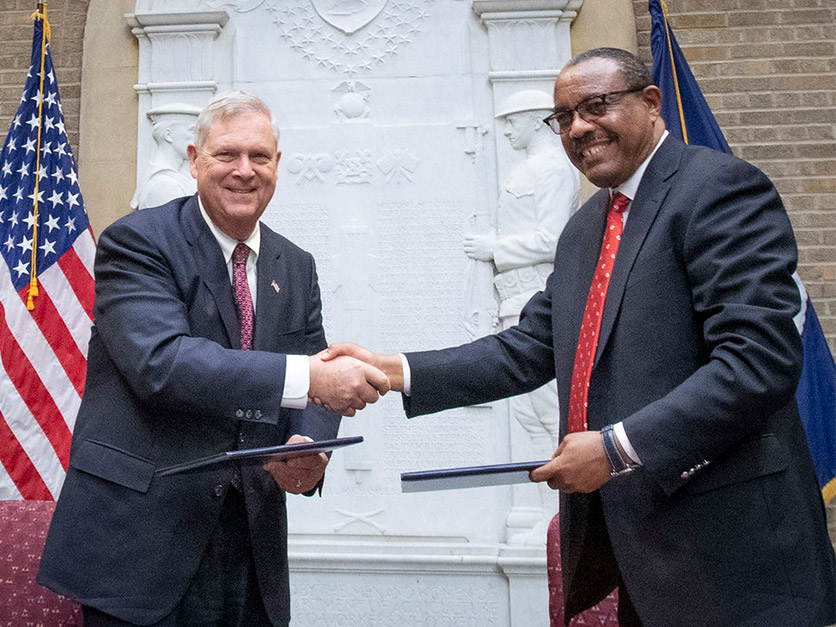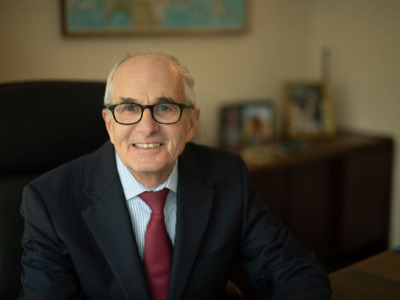Last year, hunger (including nutrition insecurity) was front and center both domestically and globally.
Domestically, the White House Conference on Hunger, Nutrition and Health was the center of attention. On September 28th, President Biden announced a two-part goal: to end hunger in the United States by 2030; and to lower the toll of diet-related diseases.
Globally, the focus of attention was on Africa, with good reason. Africa has the biggest hunger problem and the most potential to increase production. Africa is also of growing importance politically and economically. It has some of the fastest growing economies, a booming population and one quarter of all the votes at the United Nations. Moreover, Africa is more important to our national security as global alliances realign.
Last year, Africa had the attention of USDA, State, Treasury and USAID. Then the year ended with President Biden hosting African leaders from December 13-15. The “Vision Statement for the U.S.-Africa Partnership” stated:
“On the occasion of the U.S.-Africa Leaders Summit in Washington, D.C., the United States and the African Union, under the leadership of President Joseph R. Biden, Jr., President of Senegal and Chair of the African Union Macky Sall, and African Union Commission Chair Moussa Faki Mahamat, affirm our commitment to reinforce longstanding areas of cooperation and expand our partnership to better meet the shared challenges – and opportunities – of our dynamic era. The United States and African nations recognize that our world is quickly changing, and this Summit reflected how our relationship is evolving with it. We will deepen our collaboration to solve global problems and shape the rules of the road for technology, space, cybersecurity, trade, environmental protection, and economics.”
The Vision Statement continues with a specific reference to agriculture:
“We are dedicated to responding to the current food security crisis and bolstering resilient and sustainable food systems. Recognizing today’s acute food security needs, which have been heightened by the war in Ukraine, we plan to continue to partner to supply humanitarian assistance to vulnerable communities. But responding to emergencies is not enough; we announced a new strategic partnership that seeks to deepen our collaboration to increase food production capacity and diversify and strengthen the resilience of food supply chains.”
Improving global food security is exactly the goal of the USDA Memorandum of Understanding (MOU) signed at the beginning of last year with the Alliance for a Green Revolution in Africa (AGRA). Secretary Vilsack executed the MOU with the AGRA Board Chair, the former Prime Minister of Ethiopia, H.E. Hailemariam Dessalegn. The Foreign Agriculture Service, FAS, helped to craft the MOU.
 Secretary Vilsack executed the MOU with the AGRA Board Chair, H.E. Hailemariam Dessalegn. (photo: Marshal Matz)
Secretary Vilsack executed the MOU with the AGRA Board Chair, H.E. Hailemariam Dessalegn. (photo: Marshal Matz)The potential is significant for Africa and for the United States. African production is only 10% of ours even though a much greater portion of the African population is employed by agriculture. Our land grant universities might be able to play an enhanced role by working more with African agricultural scientists – not just in seeds and fertilizer and conservation practices. Our land grants hold expertise in trade facilitation, combatting food loss and waste, training the next generation of agriculturalists, and developing science-based solutions to some of the most vexing challenges facing the continent. We need to start with an inventory of what is being done at the present time and build from there.
Africa is the future, and the Biden Administration seems to fully appreciate the opportunity. In some respects, the US is playing “catch up” with the Chinese who are investing heavily in Africa. China, for example, built the entire African Union headquarters in Ethiopia. But it is not too late for the United States if we remain fully committed to the Vision Statement issued last month.
Marshall Matz is senior counsel at OFW Law in Washington, D.C., specializing in food security.
For more ag news and opinions, visit www.Agri-Pulse.com.


